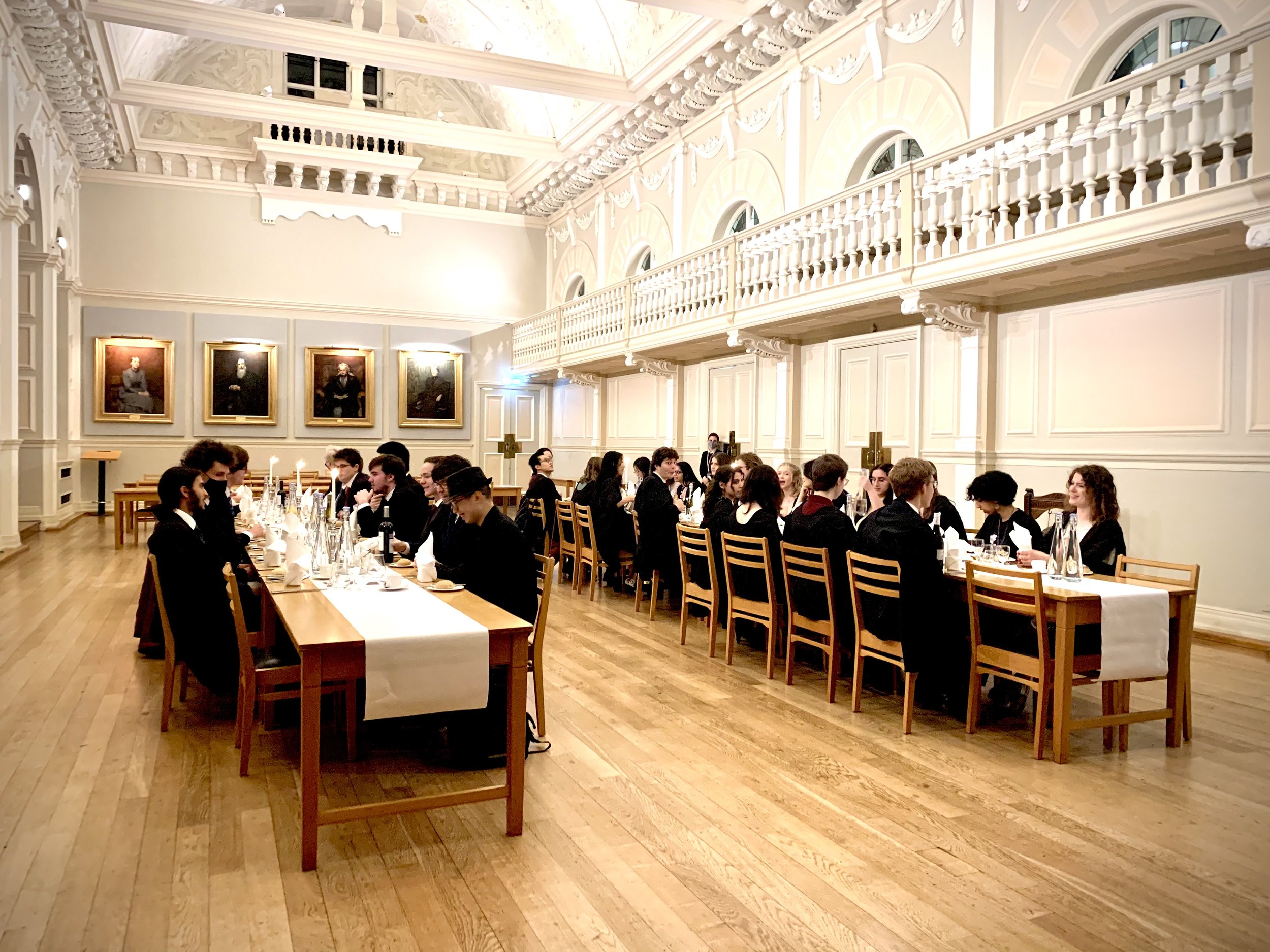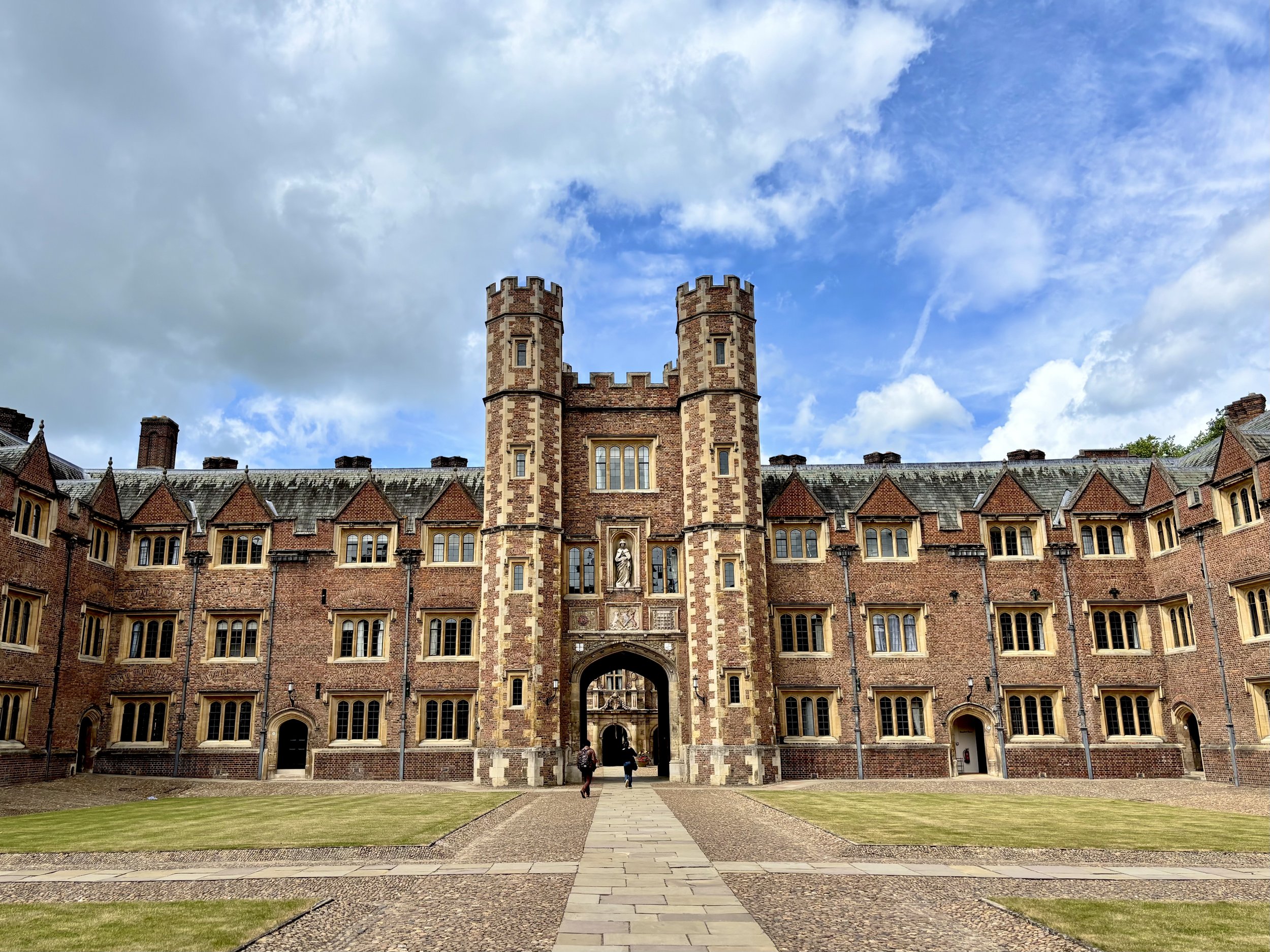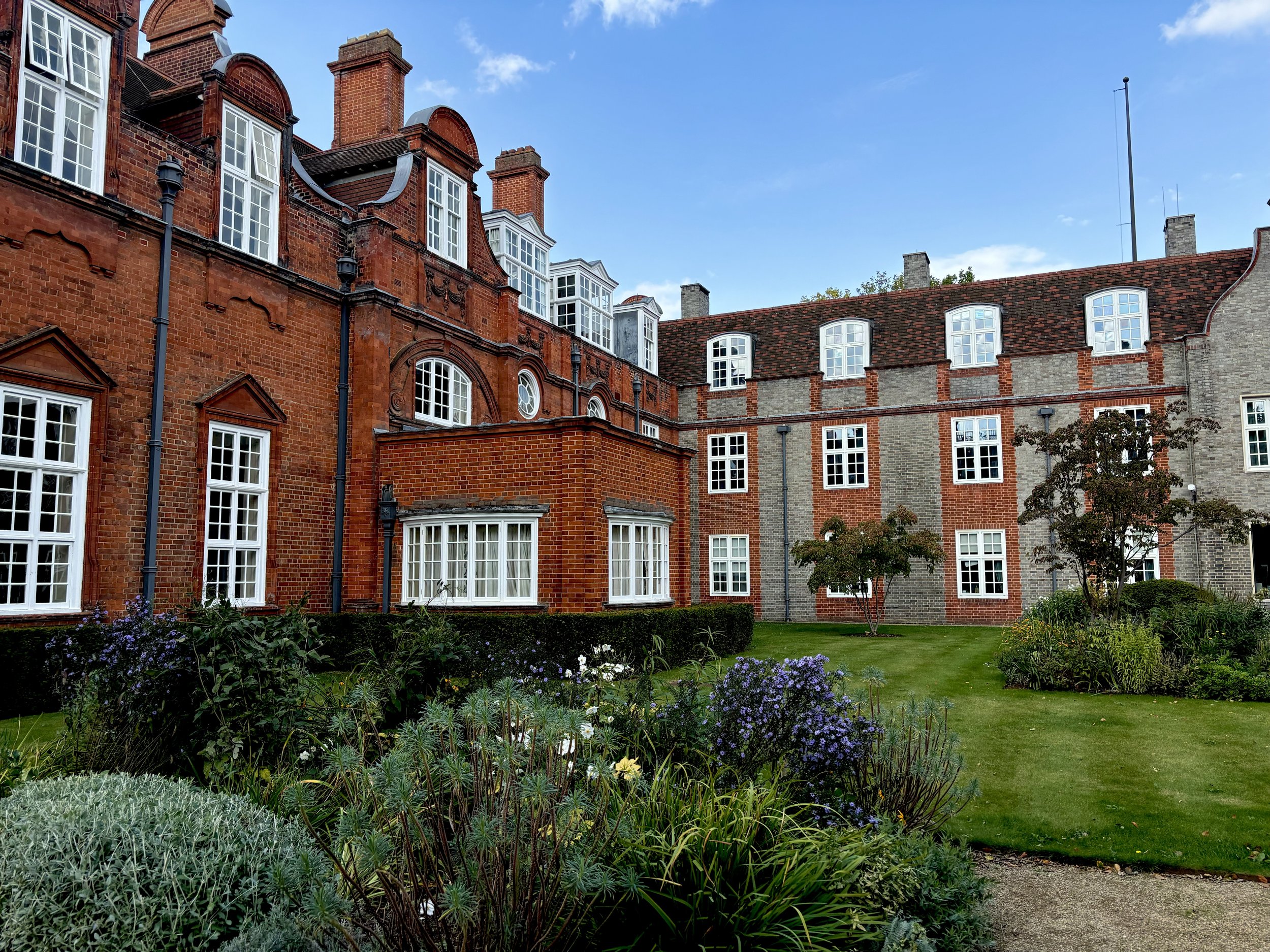How to Apply to Cambridge as an International Student
Cambridge, consistently ranked among the top universities globally, accepts only the most academically exceptional applicants who dream of studying at this historic institution. This global recognition naturally creates an exceptionally competitive admissions process. International students, representing over 20% of the undergraduate population, compete alongside top candidates from around the world. The admissions process for international applicants involves additional complexities as they are expected to demonstrate both cultural adaptability alongside academic excellence. They therefore require specific preparation to maximise their chances of admission. This guide will walk you through the essential steps of the admissions process as an international applicant, from choosing the right college for you, to excelling in your interview.
Cambridge Application Timeline
Cambridge and Oxford require earlier UCAS deadlines because their rigorous selection process includes subject-specific assessments and multiple interview rounds that must be completed before other universities even review applications. Below are the key dates to add to your calendar for the 2025/2026 admissions cycle.
UCAS deadline for Cambridge: October 15th 2025
Admissions assessments: Mid-October 2025 (exact dates vary by subject)
My Cambridge Application deadline (formerly SAQ): October 22nd 2025 (6pm UK time)
Interviews: December 1st to December 19th 2025
Winter pool interviews: Mid to late January 2026
Offers are delivered: Late January 2026
Given this compressed timeline, international students should begin preparing in May-June of their application year, allowing adequate time for test preparation, personal statement refinement, and interview practice.
UCAS application timeline
Choosing your Course
The UK education system is unique because it favours depth over breadth from day one. This is most evident by the fact that when you apply to UK universities, you apply for a course and already know what your major will be. In contrast, US universities emphasise breadth as students can choose their major much later in their university career.
Ensure that you thoroughly research your intended course through Cambridge's detailed course pages, including reading lists, assessment methods, and career outcomes for graduates. Some courses may have similar names but vastly different content and career paths. For example, if you're interested in studying economics, you might choose between Economics (focused purely on economic theory and analysis) or Land Economy (which combines economics with law, environmental science, and property development).
You can only apply to one course per application cycle at Cambridge, and switching courses after acceptance is extremely difficult, so choose carefully based on your academic interests and career goals. Once you have selected your course, you’ll need to navigate Cambridge’s unique collegiate system.
Understanding the Collegiate System
Cambridge is also unique among British universities in that it runs on a collegiate system. There are 31 colleges in total, each varying in age, size and character. Every student of the university is simultaneously a member of a college, as well as the University of Cambridge. Your college is responsible for providing your housing, supervisions, meals, and pastoral care. When deciding on a college, consider factors like location (you might want a college close to your department), size (undergraduate populations range from 200 to 700), accommodation policies, and social atmosphere. However, teaching quality is consistently excellent across all colleges as lectures are delivered by the department, rather than college.
If you prefer not to choose a college, you have the option to submit an open application. This means you'll be allocated to a college that has space in your subject area.
For more information on the collegiate system, here is a guide to how to choose a Cambridge college.






Academic Entry Requirements for International Students
Entry requirements vary between courses and if you receive an offer, you’re also likely to have subject-specific requirements. This means not only achieving the overall grades, but also getting specific grades in particular subjects relevant to your course (e.g. A* in further maths for engineering). For example, Natural Sciences might require A*A*A with A* in both mathematics and chemistry, whilst History applicants might be given A*AA without the A* in a specific subject.
This highlights the importance of predicted grades, which are your teacher's forecasts of your final exam performance. Admissions tutors use these predictions to assess whether you're likely to meet Cambridge's demanding standards and decide whether to make you an offer.
International students with qualifications like IB, AP, or other national systems should check both the grade equivalents and specific subject requirements, as these often differ from A-level standards. For example, Engineering typically makes offers of A*A*A, which at IB is equivalent to 41-42 points, with 776 at Higher Level.
For more information about entry requirements, visit the university’s detailed entry requirements page.
Requirements can change between application cycles, so always verify the current standards for your specific application year and course combination.
English Language Proficiency
Depending on your local education system and prior education, you may need to sit the IELTS or TOEFL iBT to prove your English proficiency. Students who have completed their secondary education entirely in English, or who are from certain English-speaking countries, may be exempt from language testing. Check Cambridge’s specific exemption criteria, as being from a majority English-speaking country does not automatically guarantee exemption.
Plan to take your English proficiency test well in advance of application deadlines, ideally before September of the year you’re applying. Test results are valid for two years, so early preparation allows time for retakes if needed.
Cambridge requires high English proficiency scores: IELTS 7.5 overall (7.0+ per component) or TOEFL iBT 110 overall (25+ per section). These demanding standards reflect the intensive academic reading, writing, and verbal participation expected in supervisions and lectures.
The UCAS Application
Like domestic applicants, international students also apply to Cambridge through UCAS, the service where you submit your personal statement and transcripts. International applicants may be expected to provide additional documentation such as English language test scores or translated transcripts.
The most important component of the UCAS application is the personal statement, where you are expected to voice your reasons for studying the course you chose in 4,000 characters or fewer. The personal statement is composed of three questions, all of which you have to answer. These are:
Why do you want to study this course or subject?
How have your qualifications and studies helped you prepare for this course or subject?
What else have you done to prepare outside of education, and why are these experiences helpful?
Cambridge admissions tutors focus heavily on academic content and intellectual curiosity, so emphasise specific examples of independent reading, research projects, or academic achievements that demonstrate your genuine passion for your chosen subject. Given Cambridge's competitive admissions process and focus on academic excellence, crafting an exceptional personal statement is crucial. For detailed guidance on structure, content, and common pitfalls to avoid, refer to our comprehensive personal statement guide.
The My Cambridge Application
The My Cambridge Application, formerly known as the Supplementary Application Questionnaire (SAQ), is an additional form that asks questions about your school systems, qualifications, and requires transcript uploads. This allows Cambridge admissions tutors to understand your educational background, grading systems, and any circumstances that might not be clear from your UCAS application alone.
You must also upload a recent passport-style photograph, which will be used for identification during interviews. You may also submit an optional additional Cambridge-specific personal statement if there are important circumstances or achievements not covered in your UCAS personal statement. However, most applicants don't need this; only use it if you have genuinely relevant information that couldn't fit elsewhere.
Prepare by gathering your complete academic transcripts to date, ensuring any non-English documents are officially translated, and having a suitable photo ready. The form typically takes 30 minutes to complete if you have all the documents prepared.
This must be submitted by October 22nd 2025 at 6pm UK time, one week after the UCAS deadline, so plan accordingly.
For more information about the My Cambridge Application, visit the official Cambridge page.
Admissions Tests and Written Work
Most courses require pre-interview assessments, and often admissions tutors use your score from these to decide whether to invite you to interview. Most tests are taken in mid-October, and you typically need to register separately through your test center by early October. Don't rely on Cambridge to register you; this is entirely your responsibility and missing registration deadlines means you cannot take the test or be considered for admission. For arts and humanities courses, you may need to submit 1-2 pieces of recent written work (typically essays from your current studies). Check your specific course and college requirements as these vary significantly.
Examples
Engineering and Science Admissions Test (ESAT): Engineering, Chemical Engineering, Natural Sciences
National Test for Law (LNAT): Law
Test of Mathematics for University Admissions (TMUA): Economics, Computer Science
The best way to prepare is to systematically work through past papers, understand the question formats, and practice under timed conditions. Start preparation at least 6-8 weeks before your test date.
For more information on admissions tests, visit Cambridge's comprehensive admissions test guide.
The Cambridge Interview
Interviews for international students may be conducted online or in-person, depending on your college and location. Some colleges offer both formats, with the specific format determined by factors including your country of residence and chosen course. If you are invited to interview online, you should test your internet connection, camera, and microphone in advance to avoid technical issues. You should also consider differences in time zones so you can perform at your best.
The Cambridge interview is unique in that it's an academic conversation designed to explore your intellectual curiosity and subject knowledge, not a personality test or assessment of your hobbies. You will be asked challenging questions, and assessed on how well you handle new concepts.
For comprehensive interview preparation strategies and subject-specific guidance, visit our detailed Cambridge interview guide.
Visas, Documentation, and Legal Preparation
After your exam results are released and you meet your Cambridge offer, you will need to apply for a Student visa (formerly Tier 4) to study in the UK. You can only apply once you have your Confirmation of Acceptance for Studies (CAS) number from Cambridge.
Key requirements
CAS number: Issued by the university after you accept your offer and meet all conditional requirements (such as achieving required exam grades).
Financial proof: Evidence you can cover tuition and living costs
Valid passport: Must be valid for the duration of your studies
Tuberculosis test: Required for students from certain countries
Apply for your visa as soon as you receive your CAS because processing usually takes 3 weeks but can take longer during peak periods.
ATAS Certificate: Some science and engineering courses require an Academic Technology Approval Scheme (ATAS) certificate before you can apply for your student visa. This security clearance is required for international students who want to study certain sensitive subjects that could potentially be used to develop military technology. The ATAS process can take 20-30 working days, so apply as soon as you receive your conditional offer. Check if your course requires ATAS on the UK government website.
Document Translation: All non-English documents must be officially translated by certified translators. This includes:
Academic transcripts and certificates
Birth certificates
Financial documents
Any other supporting documents
Use certified translators with proper credentials. Translations must include the translator's qualifications and contact details.
Additional Considerations
Biometric information: You'll need to provide fingerprints and a photograph at a visa application center
Healthcare surcharge: Most students must pay the Immigration Health Surcharge (currently £776 per year) for access to NHS services
Arrival timing: You can arrive in the UK up to one month before your course starts
Start your visa preparation early - the process involves multiple steps and waiting periods that can delay your arrival if not planned properly.
Costs, Scholarships, and Financial Support
Living expenses for international students in the UK vary between universities. At Cambridge, tuition fees vary by course, ranging from approximately £24,000 for humanities courses to £63,000 for clinical medicine. These fees increase annually, so check current rates for your application year.
In addition to tuition, college fees total approximately £11,000 per year. This covers the cost to your College of providing a range of educational, domestic and pastoral services and support.
Living costs in Cambridge are also approximately £11,000-£14,000 per year.
Major scholarships include:
Cambridge Trust: Merit-based funding covering partial to full costs
Gates Cambridge: Full funding for postgraduate students only
Country-specific funding: Jardine (Hong Kong), Chevening (various countries)
Important: Many scholarship deadlines occur before or alongside university applications (September-December). Research funding options early as some require separate applications submitted months before your course application.
Life at Cambridge as an International Student
With over 20% of Cambridge students originating overseas, the university has robust support systems including dedicated visa guidance, mental health services, and academic transition support. Upon arrival, you may spend some time adjusting to the new environment, especially if you have never experienced living in the UK before.
International students often arrive in college 2-3 days before domestic students for specialised orientations that cover practical matters like opening bank accounts, registering with the National Health Service (NHS), and understanding British academic culture, alongside social events to connect with fellow international students. In this time period, international student societies also hold orientation events and mentoring schemes to help you settle in.
When researching colleges, specifically ask about their vacation accommodation policies during your college choice process. Some colleges guarantee the same room year-round for international students, while others require disruptive moves between terms that can interrupt study routines and require packing/unpacking belongings multiple times a year.
Beyond formal pastoral support, joining college societies, sports teams, or volunteering opportunities helps build lasting friendships with both British and international students, creating a true sense of belonging in the Cambridge community.
Quick Tips
With the school year starting soon, here are some quick tips to help you stay on track for your Cambridge application.
Start early: Begin preparation early (approximately 6 months before deadlines) to allow for subject exploration, test preparation, and multiple personal statement drafts.
Qualifications: Research exact grade requirements and equivalencies for your qualification system (IB, AP, etc.) early, as some may require specific subject combinations.
My Cambridge Application photo: As part of the My Cambridge Application, you are expected to submit a passport-style photo. If you are accepted for your course, this photo will be used on your ID card, so make sure you’re happy seeing it for the next 3+ years.
Personal statement and interview: These are often the most challenging and time-consuming parts of the admissions process. You may want to consider getting expert help to maximise your chances of success.
Admissions Tests: Don't underestimate admissions tests. Start practicing 2-3 months in advance. These tests often determine interview invitations and you're competing against top students globally.
Show genuine intellectual curiosity: Cambridge values students who find joy in learning for its own sake, not just those chasing perfect grades. Demonstrate this through independent reading, research projects, or thoughtful engagement with your subject.
Research thoroughly: Each course and college has unique requirements and culture. Invest time in understanding what makes your choices special.
Final Thoughts
Given that Cambridge attracts talent from all over the world, their admissions process is undeniably challenging. However, with thorough preparation, genuine intellectual curiosity, and a clear understanding of what the university seeks in candidates, international students can present compelling applications. Keep in mind that Cambridge wants to accept outstanding students from diverse backgrounds, so your international perspective is valued, not a disadvantage. Start your preparation early and approach each stage of the application process thoughtfully. The journey may be challenging, but the rewards of joining one of the world's most prestigious academic institutions make every effort worthwhile.
Ready to strengthen your Cambridge application with guidance tailored specifically to you? Book your free consultation with our Cambridge specialists today. We'll assess your individual background, goals, and challenges to create a personalised preparation strategy that addresses your unique needs.
Frequently Asked Questions
-
Yes, all Cambridge colleges accept international students.
-
Admissions statistics fluctuate annually, but in 2024 there were 7,638 international applications and 851 acceptances, resulting in an acceptance rate of 11.1%. Official 2024 admissions statistics can be found here.
-
Exact percentages may fluctuate annually, but usually over 20%.
-
Cambridge sends out interview invitations in mid to late November.
-
Oxbridge offers for the 2025/2026 application year are released in late January 2026.

